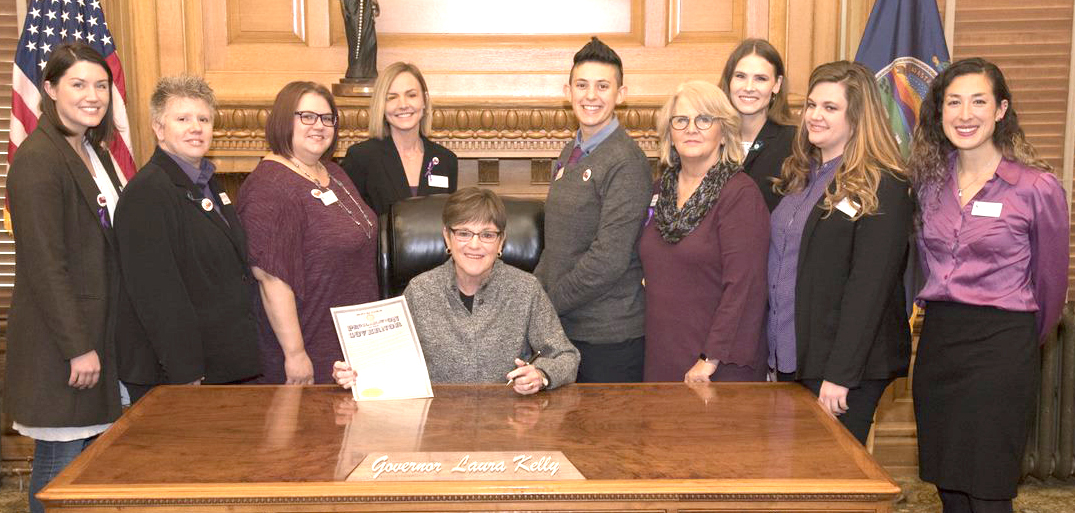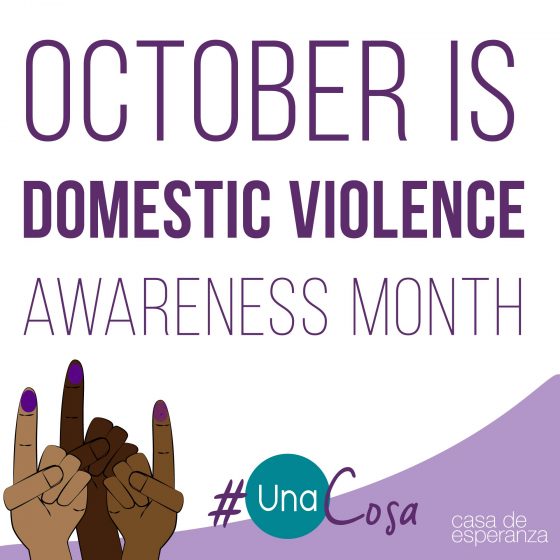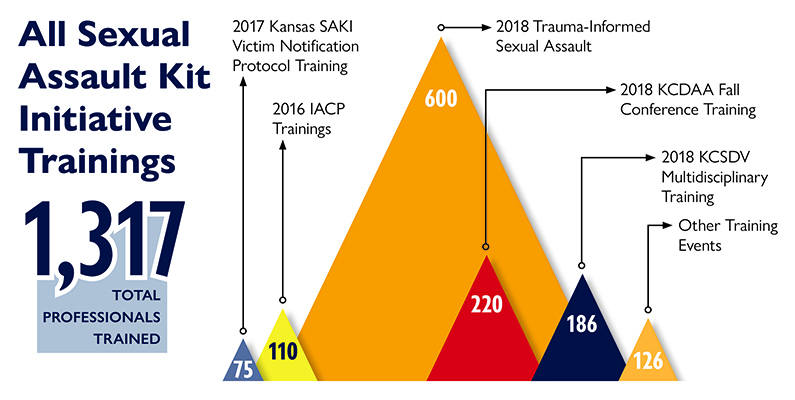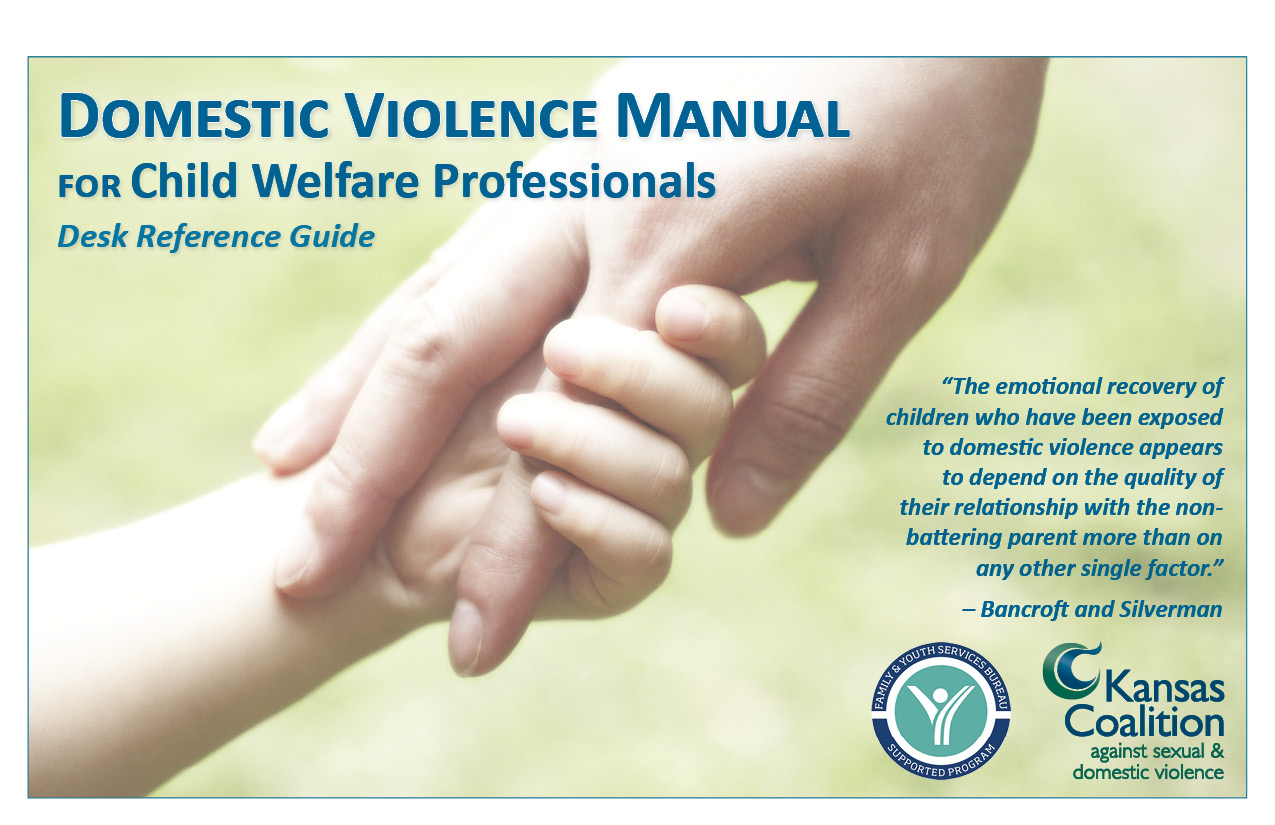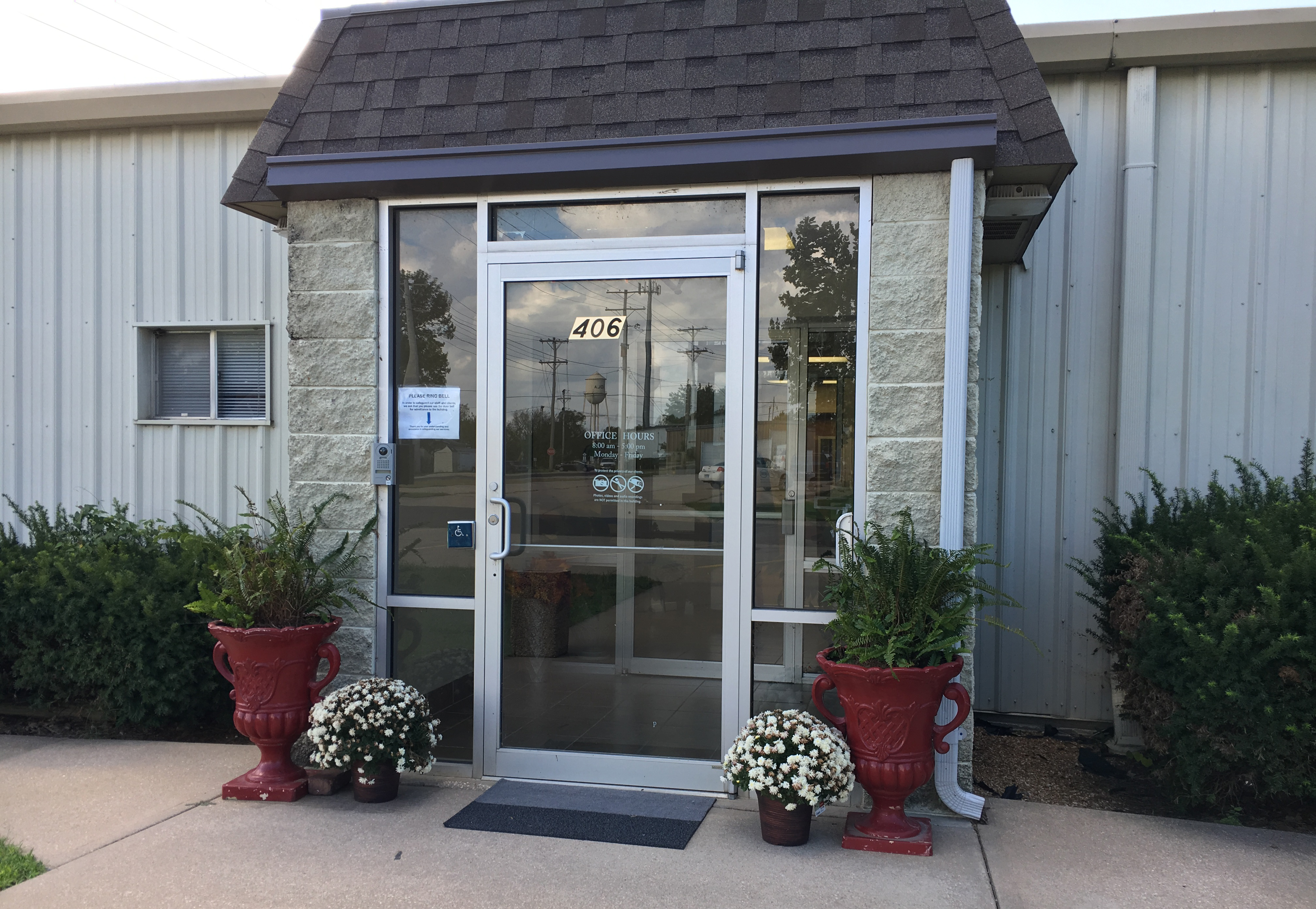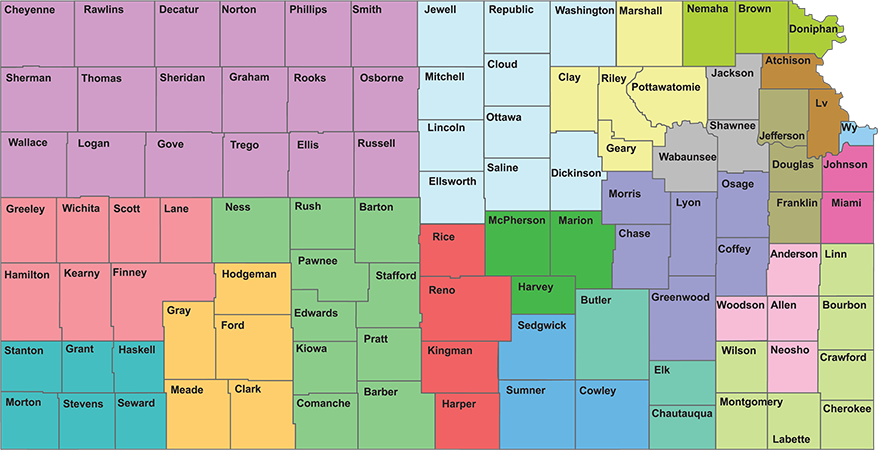KCSDV Fall 2019 Newsletter: Domestic Violence Awareness
- October 28, 2019
- Posted by: Lucca Wang
- Categories: 2019, Newsletters
In This Newsletter:
- Kansas Governor Laura Kelly Proclaims October as Domestic Violence Awareness Month in Kansas
- Domestic Violence Awareness Month
- Sexual Assault Kit Initiative
- Child Protective Services and Child Welfare
- Iola’s Hope Unlimited Moves to New Home
- Glad You Asked: Where Can I Get a Protection Order?
- Resources
On Friday, October 11, 2019, Kansas Governor Laura Kelly signed the Domestic Violence Awareness Month Proclamation, marking October 2019 as Domestic Violence Awareness Month in Kansas. This, like all of our other proclamations and awareness events and participation, are so important for increasing knowledge and catalyzing conversations to better responses to victims and survivors and ultimately prevent and eliminate domestic violence. We are grateful our state leaders join us acknowledging the problem and join us in the movement to end domestic violence.
In a Facebook post, the Governor’s Office announced the Proclamation saying, “Millions of people across our state and nation are affected by domestic violence each year. To help raise awareness and show support for victims and survivors of domestic violence, I signed a proclamation marking October as Domestic Violence Awareness Month in Kansas.”
“Domestic violence impacts all Kansans and Kansas communities,” said Kansas Coalition Against Sexual and Domestic Violence (KCSDV) Executive Director Joyce Grover. “Domestic violence is a widespread, preventable, public health problem. It takes us all to create safe environments and communities.”
October is Domestic Violence Awareness Month (DVAM). The awareness month evolved from the “Day of Unity,” which was created by the National Coalition Against Domestic Violence in October 1981. This special day became a week-long event, and in October 1987, the first National Domestic Violence Awareness Month was observed.
This year, October 2019 is the 32nd anniversary of Domestic Violence Awareness Month (DVAM). The objective of the awareness month is to increase awareness about domestic violence and its impact on individuals, families, and communities. The month can serve as a time when we mindfully and intentionally increase our own knowledge of what domestic violence is and can provide the time and space when we can openly talk with our families, friends, and communities about domestic violence and how we can support each other.
Domestic violence is a pattern of coercive, controlling behavior that can include physical abuse, emotional or psychological abuse, sexual abuse, and/or financial abuse. Controlling, coercive behavior may manifest itself in a variety of ways including but not limited to: dictating how the survivor dresses, where they go, who they can talk to, or what they do; looking at or acting in ways that scare the person they are abusing; stalking the survivor or monitoring their every move (in person or via the internet or other devices); telling the survivor they can never do anything right; taking the survivor’s money or refusing to give them money for expenses.
Domestic violence is a problem that affects millions of people, of all ages, economic status, sexual orientation, gender, gender identity, race, religion, or nationality, in all types of relationships. Kansas is not immune to it. In 2017, one domestic violence incident occurred every 23 minutes and 9 seconds in Kansas. In 2017, there were 22,708 incidents of domestic violence reported to law enforcement agencies across Kansas. In 2017, programs served nearly 60,000 individuals across Kansas. In 2018, these programs served more than 77,000 people.
Advocacy Services and Resources
Kansas has 26 sexual and domestic violence advocacy programs serving all 105 counties. 23 of these programs provide domestic violence services to victims and survivors and their families. Services include 24-hour crisis hotlines and safe shelter, crisis intervention and support, personal advocacy, medical advocacy, court advocacy, law enforcement advocacy, emergency accommodations, supportive counseling, support groups, and child and youth advocacy. All of these services are voluntary, confidential, and available at no cost to the victim.
To get help and access these services, call the Kansas Crisis Hotline at 1-888-363-2287.
Find a map and listings of Kansas sexual and domestic violence victim advocacy programs at https://www.kcsdv.org/find-help/in-kansas/dv-sa-services-map.
The Kansas Bureau of Investigation (KBI) recently announced findings and recommendations resulting from a five-year collaborative effort to identify, inventory, and test previously unsubmitted sexual assault kits in Kansas. The KBI announced the achievements of the Kansas Sexual Assault Kit Initiative (SAKI) as well as launched a new statewide public awareness campaign to confront social biases related to sexual assault.
KCSDV has been a partner on SAKI, providing knowledge of victim services and response development for various aspects of the project. KCSDV also lead and hosted trainings on trauma-informed sexual assault investigation and on enhancing coordinated responses to sexual assault cases within a multidisciplinary team. 1,317 professionals were trained across the state.
The Child Protective Services and Child Welfare Capacity Development Training Component of KCSDV’s Empowered Families Kansas Project takes new, evidence-based practices and implements those practices to create a model for the state and for others nationally.
In 2016, KCSDV conducted a needs assessment to help identify what training on domestic violence was offered to child welfare staff, including child protective services staff, and how child welfare professionals and domestic violence advocates collaborated across the state. A survey was sent to all child welfare professionals in Kansas, and listening sessions were completed with child welfare administrators and domestic violence advocates as well as with non-abusing parents navigating the child welfare system.
The needs assessment results were used to create training curriculum and resources for child welfare professionals on how to respond to families experiencing domestic violence when the families reach out for victim advocacy services or are in the child protection services and child welfare systems. One of the resources developed was the Domestic Violence Manual for Child Welfare Professionals.
The results of the needs assessment were used to update and expand the manual, which is a key component of the trainings provided through the project. Over 1,250 copies of the manual have been distributed to date.
KCSDV began trainings in the fall of 2017. 1,221 child welfare professionals and domestic violence advocates have been trained to date. This equates to more than 110 contact hours of training. The 32 trainings included topics such as: safety planning with survivors of domestic violence and their children, strategies and skills to address domestic violence in child welfare, and collaboration building between child welfare and domestic violence programs. The trainings included in-person presentations, online webinars, and conference and preconference institute learning sessions. The trainings were held in Topeka, Olathe, Chanute, Wichita, Hays, Emporia, Kansas City, and Overland Park.
The project is now in its final year. Evaluations of the project trainings show that training participants felt they increased their individual and professional knowledge by attending the trainings.
“Quality training on best practices and evidence-informed services is critical to creating positive outcomes for victims and their children involved in the child welfare system,” said KCSDV Child and Youth Project Manager Carolyn Allred.
KCSDV began the Empowered Families Kansas Project in 2016 as one of 12 demonstration sites nationally. The project is funded by the U.S. government’s Family and Youth Services Bureau FVPSA (Family Violence Prevention and Services Act) grants under the Specialized Services for Abused Children and Parents Program.
Iola’s local sexual and domestic violence services provider Hope Unlimited moved locations in mid-September.
The move from the organization’s old quarters at 8 N. Washington Avenue will allow the organization more room to operate, noted Hope Unlimited’s Executive Director Dorothy Sparks.
“We’ll have twice as much square footage,” she said.
The organization now resides in the building that used to house the Iola Kansas Department of Children and Families (DCF) office at 406 N. Buckeye Street.
Despite being vacant for more than two years since DCF closed this office location, Dorothy says the building was in good condition.
Volunteers helped prepare the building, including new paint and a new security system.
The organization will continue to have a visitation center for parents sharing custody of their children and a site for forensic interviews for child and youth abuse victims. Hope Unlimited’s off-site shelter continues to provide a temporary safe haven for battered individuals and their families.
Visit Hope Unlimited’s website at http://hope-unlimited.org.
You can get a protection order in three ways:
- Online: Blank Petitions for a Protection From Abuse (PFA) and a Protection From Stalking, Sexual Assault, or Human Trafficking (PFSSAHT) orders are available at no cost on the Kansas Judicial Council website at http://kansasjudicialcouncil.org/legal-forms/protection-orders.
On this webpage, select one of the two petitions by clicking the name of the protection order you are seeking; after clicking, you will be directed to another webpage, and on this other page, click “Petition” to access the petition.
- Clerk’s Office: The physical, already-printed petitions can be obtained in person from your local court clerk.
- Local Program: Most local sexual and domestic violence advocacy programs have physical copies of the forms already printed, or the staff and advocates at the program can help you find the correct form for your situation online. To connect with your local advocacy program, visit the KCSDV website at https://www.kcsdv.org/find-help/in-kansas/dv-sa-services-map/.
An advocate or attorney can discuss the petitions with you and help you with the process of submitting a petition. They can help in completing the form, answer any questions you might have, and might also be able to provide information to you in deciding whether the benefits of a protection order outweigh the risks for you legally and personally based on what you feel and know is best for you.
If any advocates and attorneys have questions about protection orders, please contact KCSDV’s Protection Project Coordinator: https://www.kcsdv.org/contact/.
This project was supported by Grant No. 2017-MU-AX-0006 awarded by the Office on Violence Against Women, U.S. Department of Justice. The opinions, findings, conclusions, and recommendations expressed in this publication are those of the author(s) and do not necessarily reflect the views of the Department of Justice, Office on Violence Against Women.
The Kansas Coalition Against Sexual and Domestic Violence (KCSDV)’s mission is to prevent and eliminate sexual and domestic violence. Find more information on KCSDV’s website at http://kcsdv.org.
The 24-hour Kansas Crisis Hotline is 888-END-ABUSE (888-363-2287).
KANSAS CRISIS HOTLINE: 888-END-ABUSE | 888-363-2287
Last Updated on Oct 28, 2019
